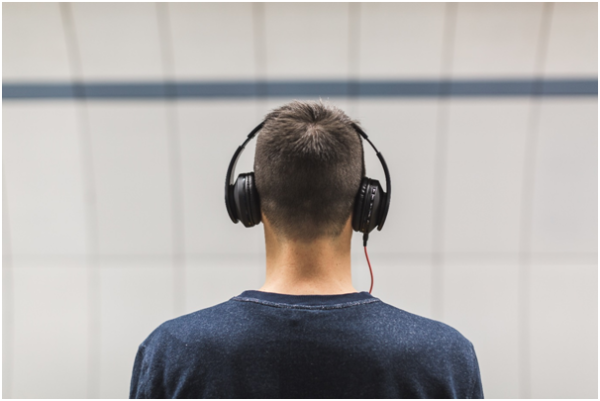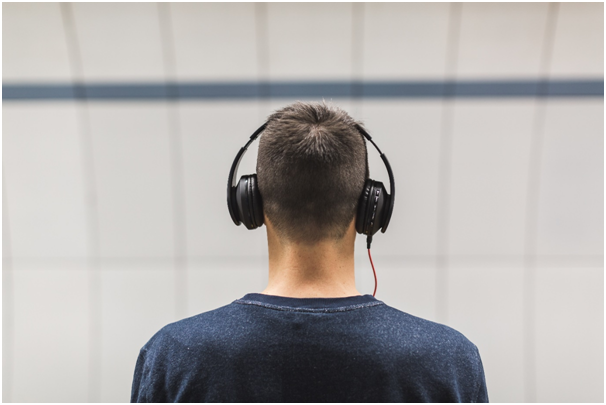
Many Australians suffer from hearing loss. A large percentage of the population have not done anything about their hearing loss and so experience significant difficulties. Hearing loss can negatively impact daily life in a number of ways. Hearing loss can impact you in the home, in the workplace, in social situations, and it can even negatively impact your safety. Let’s have a look at how it does this. Then we will have a look at some strategies you can use to help your hearing abilities in these environments.
Impact of hearing loss at home:
Hearing impairment not only affects the person with the impairment but also their significant other. Hearing loss can have a negative impact on our relationships and communication with others in our home environment. As humans we rely on social bonds with other people. Social bonds are created and maintained through our interactions with one another. A way to communicate and build these bonds with others can be through conversations. Hearing loss affects the way we communicate with others and can therefore effect our relationships too. In relationships where there is one person with hearing loss, the following may be true:
- Frustration can occur, sparking argument and impatience
- Communication is minimised due to difficulty of interaction and they only talk to each other when necessary e.g. to ask a question or to give information, rather than for social reasons.
- Connection is heavily reliant on communication, meaning the depth of the relationship may suffer
The people in their lives may become distant with them as their communication is not what it once was. They may feel rejection if the person with the hearing loss is not responding to them or is socially withdrawing due to their inability to join into conversation. They could be confused as they do not understand what their partner is going through. They may feel sadness for their partner and what they have to deal with. They can also feel anger or frustration with having to repeat themselves or pick up a lot of the slack during a conversation.
Impact of hearing loss in the workplace:
Hearing loss also has a major impact in the workplace. Workplaces have listening conditions which tend to be more complex and difficult than other environments such as the home. The employee also has less control of the listening conditions in the workplace and so the coping strategies that they usually use in other aspects of their daily life may not provide benefit in the workplace. Technologies, e.g. hearing aids, that they use in other listening environments, may also not be enough. Most workplaces also tend to be reliant on communication.
People with hearing loss in the workplace may experience discrimination. They may find that their hearing loss stops them from interacting in their job. They may also find that it stops them from having the opportunity for further training. It may even affect their chances of promotion. There are cases where the hearing-impaired employee has moved jobs due to their poor treatment in the workplace. Hearing impaired workers often feel that their colleagues do not understand their hearing loss. They also often feel that their workplaces do not make enough accommodations for them to better fit in.
People with hearing loss in the workplace may find that they have high levels of fatigue and limited energy. They may fear what others will think of them and often avoid interacting with colleagues. They may also hide that they have a hearing loss and feel embarrassed and self-conscious.
Impact of hearing loss on social life:
Hearing loss can negatively affect people’s social lives. People with hearing loss may withdraw socially and avoid meeting new people, beginning relationships, and keep existing ones, as they cannot keep up with conversation. They may prefer to withdraw and isolate themselves.
They are also less likely to have a lot of activities which they participate in if they do not have hearing aids. This is because things that they used to do may not be as enjoyable anymore as they have trouble hearing in these environments/situations, e.g. at golf or bridge.
They may also avoid going out to meet with friends at cafes, restaurants, and clubs, as they have difficulty hearing in noisy environments and the effort required to listen is too much. For example, modern restaurants have poor acoustics (high ceilings and hard surfaces that the sound reflects off) making it very hard for hearing impaired people to communicate with others.
Impact of hearing loss on safety
Hearing loss can also negatively impact people’s safety. Those with hearing loss who are not wearing hearing aids may be at risk of accidents. For those with significant degrees of hearing loss who do not wear hearing aids, they may not be able to hear important signals warning them of danger. For example, not being able to hear important safety instructions, car horns when crossing the road, traffic noise before stepping onto the road, emergency vehicle sirens, smoke alarms in the home, security alarms, PA system announcements (e.g. at train stations), and people calling out to them.
Coping strategies:
The difficulties of hearing loss have been highlighted but it is important as someone dealing with hearing loss of if you know someone who does, to know some strategies for coping. Below are some coping strategies which may help reduce the negative impacts of hearing loss on daily life.
At home
- Reduce background noise, e.g. turn the TV down, when talking to others
- Try hearing aids and other listening devices, e.g. TV headset
- Ask for specific repeats to show that you were listening, e.g. “What did you say the name of that shop was?”
- Do not talk to each other from other rooms
- Make sure you can see each other’s faces to help with lip reading and expression
In the workplace
- Make your hearing loss known to colleagues.
- Ask people to face you and speak slowly and clearly
- Ask people to get your attention before speaking to you.
- Ask for accommodations, e.g. one speaker at a time, meeting minutes for after a discussion to ensure you did not miss anything
- Try hearing aids and other listening devices, e.g. remote microphone.
Socially
- Select venues (cafes/restaurants) with good acoustics. Make sure they have low ceilings and soft furnishings to absorb some of the noise.
- Avoid places with live bands or loud music that make it difficult to talk over
- Select quieter venues or go when they are less busy.
- If the venue has background music, ask staff to turn it down.
- Pick a table away from any doors, kitchens, or tables with noisy children.
- Ask people to get your attention before talking to you.
- Try hearing aids and other listening devices.
Hearing loss can negatively impact many aspects of daily life including in your home, workplace, and in social situations, as well as your safety. Luckily, there are some basic strategies available to help you hear in these environments. It is important to get your hearing tested to have a baseline test and to determine if there is a hearing loss which needs to be addressed. Call your local audiologist for a hearing test today.
